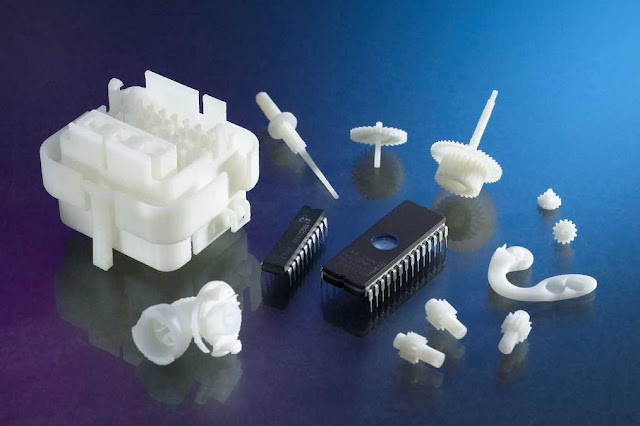Introduction: The injection molded plastics market has witnessed significant growth in recent years, driven by the increasing demand for lightweight, durable, and cost-effective materials across various industries. Injection molding is a widely used manufacturing process that involves injecting molten plastic into a mold cavity, resulting in the production of a wide range of plastic products with complex shapes and sizes. This report provides an overview of the injection molded plastics market, highlighting key trends, growth factors, and future prospects.
Global
Injection Molded Plastics Market was valued at US$ 284.70 Million in 2021 in terms of revenue, exhibiting a CAGR of
5.8% during the forecast period (2022 to 2030).
Market
Trends and Drivers:
1.
Growing Demand from Automotive Industry:
The automotive sector is a major consumer of injection molded plastics, as they
offer lightweight alternatives to traditional materials, reducing fuel consumption
and improving overall efficiency.
2.
Rapid Expansion in Packaging Industry:
Injection molded plastics are extensively used in packaging applications due to
their versatility, durability, and ability to enhance product safety. With the
rise in e-commerce and changing consumer preferences, the packaging industry is
experiencing robust growth, driving the demand for injection molded plastics.
3.
Increasing Adoption in Healthcare
Sector: Injection molded plastics play a crucial role in the healthcare industry,
providing cost-effective solutions for medical devices, equipment, and
packaging. The growing focus on advanced healthcare infrastructure and the
rising demand for personalized medicine contribute to the market's expansion.
4.
Advancements in Technology:
Technological advancements in injection molding processes, such as the
integration of automation, robotics, and 3D printing, have improved production
efficiency, reduced cycle times, and enhanced product quality. These
innovations are expected to drive market growth further.
Market
Challenges:
1.
Environmental
Concerns: The disposal and recycling of injection molded
plastics pose environmental challenges, primarily due to their
non-biodegradable nature. Increasing regulations and the growing emphasis on
sustainability may impact the market's growth to some extent.
2.
Volatile
Raw Material Prices: Fluctuations in the prices of raw
materials, such as petroleum-based polymers, can affect the profitability of
injection molded plastics manufacturers. Market players need to develop
strategies to mitigate the impact of price volatility.
Future
Outlook: The injection molded plastics market is projected
to witness continued growth in the coming years. The Asia-Pacific region is
expected to dominate the market, driven by rapid industrialization,
urbanization, and the presence of key automotive and packaging industries.
Additionally, the shift towards electric vehicles and the growing demand for
sustainable packaging solutions are anticipated to boost market growth.
The Injection
Molded Plastics Market is experiencing robust growth, fueled by the
demand from the automotive, packaging, and healthcare industries. Technological
advancements and increasing focus on sustainability are driving innovation in
the industry. However, environmental concerns and raw material price fluctuations
remain challenges that need to be addressed. Overall, the future of the
injection molded plastics market looks promising, with opportunities for
manufacturers to capitalize on emerging trends and meet the evolving demands of
diverse end-use industries.




0 Comments